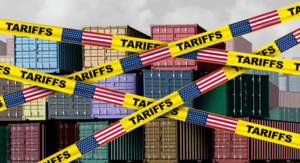
Fair Taxing Policies for Global Polluters: The Key to Climate Justice
Taxing policies for global polluters represent a critical avenue for financing the imperative transition away from fossil fuels, as underscored by recent international climate negotiations. With the urgency of climate action mounting, innovative taxation strategies emerge as indispensable tools for mobilizing substantial funding.
From carbon levies to wealth taxes, these policies offer not only financial resources but also a mechanism for holding the highest emitters accountable. By embracing equitable taxation, nations can address both the economic and moral dimensions of the climate crisis, fostering cooperation and trust on a global scale while ensuring a just transition for all stakeholders.
Taxing Policies for Global Polluters
At the United Nations Climate Change Conference (COP28) in Dubai last year, negotiators broke years of silence by agreeing to shift away from fossil fuels to address climate change. However, financing this transition remains a pressing issue.
Simon Stiell, the UN’s climate chief, emphasized the critical role of finance in the global climate battle. As the primary cause is acknowledged, attention turns to the practicalities of funding this vital shift towards sustainability.
Table of Contents
1. Climate Finance Challenges
Climate finance emerges as the pivotal concern at both COP29 in Azerbaijan this year and COP30 in Brazil in 2025. Despite recent commitments to a new “loss and damage” fund aiding developing nations combat climate impacts, current financing falls woefully short. The European Union projects a necessity of investing €1.5 trillion ($1.63 trillion) annually from 2031 to achieve net-zero emissions by 2050.
Similarly, developing nations (excluding China) anticipate requiring $2.4 trillion yearly by 2030, with taxing policies for global polluters being a potential solution. Brazil faces a singular challenge, necessitating an additional $200 billion to meet its 2030 emissions-reduction objectives. Addressing these financial shortfalls stands paramount for effective global climate action.
2. The Role of Taxation
In the aftermath of the pandemic, there are no easy fixes. Even affluent nations face constrained fiscal capacities due to sluggish growth and stringent monetary policies. Despite the universal need for increased private investment, low- and middle-income countries encounter substantial borrowing hurdles for eco-friendly ventures, necessitating alternative approaches.
Innovative strategies must be pursued to galvanize public funding, with a compelling argument favoring progressive taxation on carbon-heavy practices, excessive wealth, and taxing policies for global polluters. Such measures not only generate revenue but also uphold the ethos of “common but differentiated responsibility,” holding industries and individuals accountable while fostering sustainable economic growth.
3. Revenue Potential
Taxation serves as the primary tool for governments to generate substantial and dependable revenue, enabling them to commit to extensive spending and investment strategies over time. Particularly for developing nations, the reliability of taxes surpasses that of concessional finance.
Additionally, implementing new tax measures, such as taxing policies for global polluters, can provide countries with additional financial resources for crucial climate-focused ventures, alleviating the need to redistribute limited funds within current budgets.
Globally, a mere 0.1% financial-transactions tax has the potential to yield a staggering $418 billion annually, while a modest $5 levy per ton of carbon dioxide emissions could generate $210 billion yearly.
Read More: Climate-friendly Investments in Developing Countries
4. IMF Advocacy
The International Monetary Fund has persistently promoted the implementation of taxes on CO2 emissions and fossil-fuel extraction, as well as taxing policies for global polluters. This strategy serves a dual purpose: generating climate finance and aligning incentives by holding polluters accountable for their actions.
The additional revenue garnered from these taxes could assist high-income nations, historically significant contributors to emissions, in meeting their ethical responsibilities towards less affluent and more susceptible nations. Presently, the financial aid from wealthy countries to developing nations falls short, requiring a substantial increase beyond the current annual commitment of $100 billion to effectively address global disparities and climate-related challenges.
Read More: Green Hydrogen Development in Africa: Opportunities and Challenges
5. Addressing Inequalities
Implementing pollution taxes can address inequalities within nations, including taxing policies for global polluters. Despite lower historical and per capita emissions in some economies, a notable disparity exists between the emissions of the majority and the top emitters. Economist Lucas Chancel highlights the concept of “carbon inequality,” emphasizing its prevalence within countries rather than between them, closely linked to income and wealth inequalities.
This revelation isn’t surprising given that globally, the top 1% emit as much as the poorest 66% combined. Recognizing this injustice, citizens increasingly demand fair climate policies. Taxation ensuring affluent high emitters bear their fair burden could bridge the gap and foster public belief in a genuinely equitable transition to sustainability, beyond mere rhetoric.
Read More: Ghana’s Role in Carbon Credit Innovation: Unlocking Sustainable Solutions
6. Challenges and Solutions
Despite the robust theoretical justification for such taxes, their adoption and implementation have posed significant challenges. Capital, affluent individuals, and emissions readily transcend borders, undermining the effectiveness of national or regional tax frameworks. Taxing policies for global polluters could provide a solution to this challenge, by holding transnational corporations and entities accountable for their environmental impact regardless of their location. Despite the inherent difficulty of cross-border tax cooperation, an international agreement would afford countries greater control over their resources, enabling them to safeguard the most vulnerable segments of society.
Embracing multilateralism would serve the interests of every nation. Encouragingly, there are indications that the political resistance to taxation is diminishing. The COP28 consensus explicitly advocates for expediting the establishment of innovative financial sources, including taxation. Moreover, in November, UN member states endorsed a resolution to establish a Framework Convention on International Tax Cooperation, heralding a more equitable approach to global rule-setting.
Read More: Empowering African Women
7. International Initiatives
The G20, spearheaded by Brazil, is contemplating a global minimum tax targeting the world’s 3,000 billionaires, who currently enjoy significantly lower tax rates than the general populace. According to the EU Tax Observatory, imposing a 2% annual levy on their fortunes, if properly orchestrated, could generate $250 billion annually. Building on this momentum, a coalition of nations has initiated a new international tax taskforce.
Co-headed by the leaders of Kenya, Barbados, and France, its mission is to investigate tax strategies capable of generating at least 0.1% of global GDP to fund sustainable development and climate initiatives, including taxing policies for global polluters. Rather than proposing a universal solution, the focus is on identifying the political and technical barriers to various feasible options, leveraging a diverse array of expertise and viewpoints.
Read More: Unlocking Amazon Conservation Beyond Bioeconomy
Bottom Line
Numerous avenues are being explored, including levies on aviation, shipping, fossil fuel extraction, taxing policies for global polluters, and financial transactions. The taskforce aims to enhance comprehension regarding the equitable application of such taxes, potentially facilitating consensus on specific policies. Fair taxation stands as a potent instrument for expediting a just transition.
Through providing fresh empirical insights and nurturing trust and collaboration among nations, the taskforce can aid in rectifying the injustices inherent in the climate crisis and unlocking essential resources for its mitigation. Lessening the financial burden on impoverished individuals and nations isn’t merely a moral imperative but also crucial for garnering their indispensable support in a transition that hinges on their participation.







